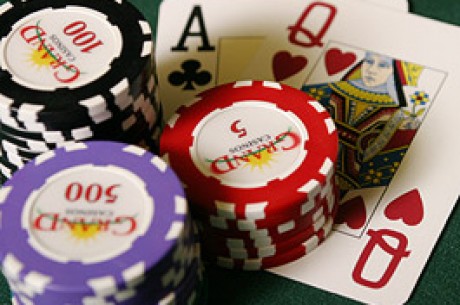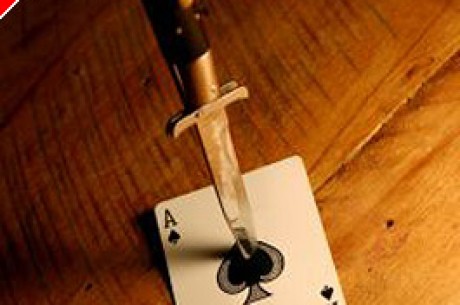Poker Book Review – Why You Lose at Poker

They say in physics that each action has an equal and opposite reaction. The same is true in poker – for every dollar won, there must be a dollar lost (rake notwithstanding). I'm no physicist, but I am a poker player. As a poker player, I read books. Pretty much every book on poker I have ever read talks about only one side of the poker equation – the winning side. Finally, I have found a book that approaches things from the opposite side of the equation. Instead of telling you how to win, two authors have attempted to tell you why you lose.
In Why You Lose at Poker, Russ Fox and Scott Harker attempt to nail down the most common causes of losing. Most books seem to act as if you do what they say, you can fill your boat with gold. These guys attempt to say 'hey – no matter how much gold you may have in your boat – if you don't fill the holes…you'll eventually sink'.
I have reviewed Fox & Harker's books before, and in a sense I think this book is valuable for the same reason their last one is, which is the way they go about making the points they make. All the real life club examples feature a cast of characters who playing tendencies are described at the beginning of the book. This has been done before – Phil Hellmuth's labeling of players by animal type comes to mind. But the characters in this book in my opinion are an excellent cross section of the people you seeing playing in the cards clubs of today, and that's why I think some of their observations are so relevant.
Fox & Harker's last book forced you to think about yourself, and I think this book forces you to think about your play. Sections like 'losing because you make incorrect bets in big bet poker' and 'the money you lose with poor bluffing habits' address many of the pitfalls of playing in the modern gladiator arenas known as today's card clubs.
The advice is well thought out, but more importantly current and therefore relevant. Since the advice comes from the perspective of losing - rather than how to win, it forces the reader to think about the issues from a different perspective. It is this perspective change that I think makes the book worth the $20 you shell out for it. Much of the material has been said in one form or another in the countless number of strategy books that have come out in recent years, but sometimes when you look at things from a different perspective, you learn in a new and different way.
The hand analysis is solid, but at times I did find it hard to stay focused on, as I found the minutia sometimes overpowered the focal point of the analysis. You definitely get your money's worth with the hand analysis – provided you can follow along.
If I could describe this book in one word, it would be the previously mentioned word relevant. These guys are clearly out in the trenches of the poker world, and they seem to have a good insight into how to survive those trenches. It is clear that these two have played a lot, and I find their language simple, and their message(s) to the point.
This probably isn't the best book for those new to the game, but if you have been playing a while, and especially if you find yourself in the middle of a bad run, the book is probably worth the investment. Who knows, it may have an equal and opposite effect on your bankroll.
Ed Note: Figure out why you lose at poker – by working on your game at Poker Stars. Sign Up Today.








